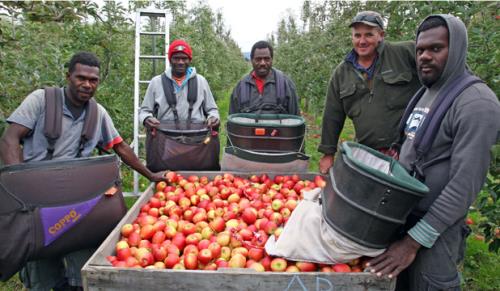Give exploited migrant workers a ‘fair go’
12 May 2015

Employment legislation recognises the imbalance in power between the employer and a worker in an employment relationship.
Migrants who come to New Zealand to study, to work, or to live are likely to do so under the authority of a permit issued by the New Zealand government.
Many are looking to secure residence or citizenship in New Zealand. Often people come from impoverished backgrounds and look to New Zealand as a land of opportunity. Indeed, many of our ancestors came to New Zealand on the same basis.
This often leads to reliance on the employer for their continuing to live in the country.
People in this situation are likely to focus on surviving and obtaining residence. Complaining about unfair work practices or below minimum wage payments may seem like a luxury to them.
But migrants are an important part of the workforce. New Zealand relies on migrant labour for some industries to be able to function at all.
The aged care industry is one such example. This industry has a large proportion of workers of Chinese, Indian, Filipino and Pacific Island decent. Seasonal orchard workers are often populated by migrants. Ethnic restaurants are also eager to utilise their skills.
Many of these workers are employed in accordance with New Zealand law, but it seems that some are not.
Many readers will have learned about the situation of 27 Chinese workers who were working in New Zealand to address an asbestos problem in 40 trains KiwiRail had bought. Concerns were raised by the Rail and Maritime Transport Union that the workers were underpaid and poorly accommodated.
The Labour inspector found there were no welfare issues with the Chinese workers but was unable to make a finding on their wages. Their employers, who were based in China, would not provide the employees’ wage records. The Labour inspector had no power to obtain these records.
Workplace Relations Minister Michael Woodhouse agreed with the claim that the workers were not governed by New Zealand law and was derided for his comments. However, what he said may contain an element of truth.
Where workers are employed under a contract in one country, and are temporarily seconded overseas, the contract from their homeland may well say the law and courts of the parent country apply.
Similarly, a New Zealander employed by a New Zealand company, who works for a limited time in, say, Papua New Guinea, may still be governed by New Zealand law and any issues would need to be decided by New Zealand courts.
The Employment Relations Authority has some discretion when hearing these cases of an international character. They will consider both how closely the contract accords with the law of each state concerned and, among other things, the likelihood the employee will see “proper justice” in the other country.
But what of long term migrant workers in New Zealand employed by a New Zealand company?
One notable case involved the labour inspector and Hon Ly trading as Taumaurunui Bakery. Three Taiwanese nationals came to New Zealand on a visitors’ visa in 2000 and commenced working in the bakery. To legally be able to do this they required work visas.
They worked under appalling conditions. The workers reported they worked long hours - 4am to 50pm, 7 days a week for 6 years until they were ultimately deported in 2007. They were paid less than the minimum wage and were not given sufficient holiday entitlements.
They should not have worked illegally of course. However people do, especially the vulnerable. They would no doubt lose their ability to stay in New Zealand if they fell out with their employer.
The labour inspector visited the workers in Thailand and pursued an action against the employer and secured an award of $220,000. This case is exemplary, with the labour inspector going to great lengths to do justice for the deported workers. We do not know if money was ever paid.
The Government is to be commended for its recent passing of the Immigration Amendment Bill (No 2), which deals with similar circumstances. Under this legislation an employer who exploits migrant labour can now be sentenced up to 7 years in jail. The act also widens the class of person who will be considered an “exploited worker” to include not just workers without work permits, but people on temporary entry class visas.
Most employers follow the law and treat their employees, whether local or from foreign lands, with respect. However, migrant workers are vulnerable. They are at times exploited. Parliament’s new legislation is to be welcomed. It is made all the more important because of the fact that whole industries appear to be dependent on migrant workers to function.
The legislation probably still relies on exploited migrants complaining. In New Zealand the old adage of giving everyone a “fair go” resonates with us. Perhaps given the vulnerability of the employees and their closeness to any offending employer, more may be needed. An enforcement strategy may be necessary to give the new law real teeth.


